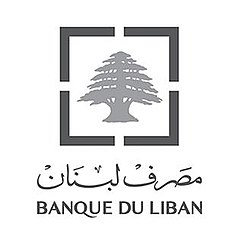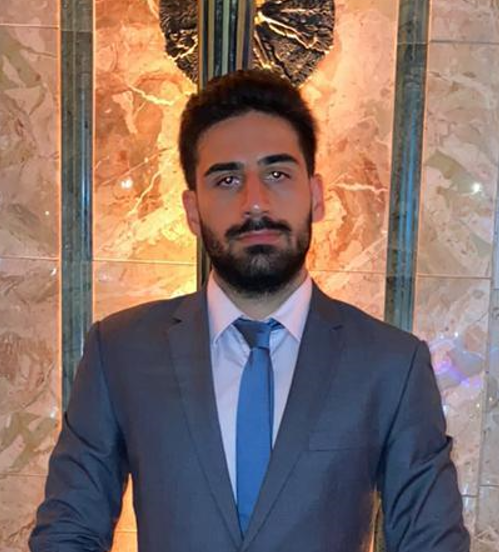My experience at the Bank of Lebanon
In this article, Jade RAKHA (ESSEC Business School, Bachelor of Business Administration, 2021) shares with us his experience at Banque Du Liban.
Banque Du Liban
Before the Central Bank of Lebanon was established in 1963, the Bank of Syria and Lebanon had the role of the central bank. For a period of 25 years, this commercial bank had the privilege of issuing the Lebanese currency.
All of the Central Bank’s expenses are paid by the government. However, 20% of its net profit is allocated to its general reserve, while the rest (80%) is for the state treasury. It is exempt from all duties and taxes and is not subject to the bankruptcy rules specified in the Trade Law applicable to banks. Nevertheless, the Central Bank is subject to the Trade Law in its relationship with third parties, it should conduct its operations and organize its accounts under commercial and banking rules.

The head office of the bank is divided into 19 directorates and 10 units. The Central Bank of Lebanon has 9 branches in different regions of Lebanon. The bodies established by the Central Bank are Supervisory Board, Special Investigation Commission, Higher Banking Authority, Capital Markets Authority, and MidClear.
The Central Bank has the power to issue regulations and to impose administrative penalties on all institutions under its control. It issues the appropriate regulatory texts to achieve its objectives. It has a special legal personality and administrative independence from the state. Its employees shall be appointed in accordance with the special law system specific to the institution and shall be subject to the Labor Law.
Moreover, the Central Bank of Lebanon enjoys financial independence, but with certain limits: all of its decisions should be approved by the Government’s commissioner, and the Governor shall submit balance sheets and operations reports yearly, to the Minister of Finance.
The Governor and his four deputies shall be appointed by a decree issued by the Council of Ministers upon the proposal of the Minister of Finance, every 6 years. They are obliged to work full-time throughout their tenure. The Governor has the widest powers to administer and operate the Central Bank of Lebanon. He is the legitimate representative of the Bank and signs all contracts and agreements. Concerning the Deputies of the Governor, they have no specific powers, but the Governor may appoint them tasks. In the event of the vacancy of the post of Governor, the First Governor shall assume office pending the appointment of an attractive governor. Such functions shall be assumed by the Second Deputy Governor in the absence of the First Deputy Governor.
The Central Council consists of seven members: The Governor as President, the four Deputy Governors, the Director General of the Ministry of Finance, and the Director General of the Ministry of Economy and Trade. It should be noted that the Director General of the Ministry of Finance and the Director General of the Ministry of Economy and Trade are not present as representatives of the Government but are present as themselves, which confirms the independence of the Central Bank of Lebanon in its decisions.
The Central Council has wide powers, since it determines monetary and credit policies, fixes the discount rate and interest rate of the bank’s loans, establishes regulations relating to bank operations, approves the balance sheet of the Central Bank’s expenses, and approves the establishment of banks and all private institutions to supervise the Central Bank of Lebanon.
As mentioned before, the Central Bank has the privilege of issuing the national currency. This privilege has been delegated to the Central Bank, which carries out this task exclusively under strict conditions and rules. The Money and Credit Law defines certain characteristics of the Lebanese currency but it has given the Central Bank the freedom to decide the size, texts, fees and other features of banknotes and coins.
To maintain the integrity of the banking system, the Central Bank of Lebanon takes all measures it deems appropriate to maintain the harmony between bank liquidity and the volume of credit in banks. Thus, it gives recommendations and uses the means that will ensure the conduct of sound banking work. This institution also acts as an adviser to the government, proposes measures it considers necessary for the economic sector and warns the government of operations it considers harmful.
My internship at Banque Du Liban
During this internship, I did not have any missions to do because it was not a practical internship, but more of a theoretical one: each day we had one speaker that came and presented the department in which he or she worked in so that we know the main tasks and roles the central bank has. I will not present all the departments of Banque Du Liban because that would take a lot of time even if it is very interesting. I’ll present some departments that are related to the financial sector and to the material that we tackle in the SimTrade course.
Directorate of Financial Operations
The general mission of the Central Bank of Lebanon, as stipulated in Article 70 of the Monetary and Credit Law, is to preserve the cash to secure the basis for lasting economic and social growth, including:
- Maintaining the integrity of the Lebanese currency
- Maintaining economic stability
- Maintaining the integrity of the banking system
- Developing the monetary and financial market
- Developing and organizing payment systems and tools
- Developing and organizing money transfer operations including electronic transfers
- Developing and organizing clearing and settlement of financial instruments, payment and trading bonds.
Thus, the Central Bank of Lebanon is responsible for monetary management in light of economic and political developments, securing liquidity for the banking and financial system, and it is the last resort to lending banks.
Most of these goals are under the responsibility of the Directorate of Financial Operations at the Central Bank of Lebanon, in charge of leading Macroeconomic policies. It is at the helm of the Economic Legislation, as well as the Fiscal and Monetary policies. Being in charge of Fiscal policy means that this department should prepare the general budget, collect taxes, give tax incentive… As for the Monetary policy, it should maintain the integrity of cash as well as low inflation rates.
The Directorate of Financial Operations determines interest at the level of the financial market. It can define either the size of cash or interest on cash. This department can also influence prices in the financial market by affecting the level of the money supply. If it wants to reduce the interest rate in the market, it increases the amount of cash (increase the money supply). Vice versa, if it aims to raise the price of money in the market, it reduces the amount of cash (reduction of the money supply).
The Special Investigation Commission (SIC)
The Special Investigation Commission is in charge of Financial Regulation and Supervision, more specifically fighting Money Laundering and Terrorism Financing. It is composed of: The Governor of the Central Bank of Lebanon as President, a member of the Council of Ministers, the Chairman of the Banking Supervision Committee or any of its members, the Appointed Judge of the Higher Banking Commission or an alternative judge.
The Financial Intelligence Unit (FIU) is a national central unit responsible for receiving, requesting, analyzing and providing the relevant authorities with financial and other information concerning possible cases of money laundering and terrorism financing.
According to the SIC, Money Laundering is defined as “any act or attempt to conceal a source of funds or assets resulting from a criminal act”. The goal of money laundering is turning junk money into clean money. The different stages are placement, layering, and integration. This process has a lot of consequences: it increases the rate of crimes, it leads to the instability of the economy, it weakens the integrity of financial institutions as well as the social and economic structure.
The definition of Terrorism Financing according to the SIC is “financial support, in any form, for terrorism and those who encourage, plan or participate in it”. It aims to raise and secure funds for terrorism. The stages of financing terrorism are the collection, transmission, and use.
The mission of the Special Investigation Commission is to receive notifications and requests for assistance, conduct investigations into suspected money laundering or terrorist financing offences, determine the seriousness of evidence, and take the appropriate decision.
The Foreign Exchange & International Operations Department
The Foreign Exchange & International Operations Department is divided into 5 different divisions:
- The Transfer Division
- The Documentary Credit Division
- The Back Office
- The Clearing Room
- The Communication Division.
There are different types of traders, like Forex Traders, Money Market Trader, Capital Market Trader, Commodities Traders, Derivative Traders…
The Forex market is the simultaneous buying of one currency and selling another. During our stay at the Central Bank of Lebanon, we got the chance to stimulate this process with Mr. Patrick el Hajj. This market has more buyers and sellers and daily volume than any other market in the world and takes place in major financial institution across the globe (daily turnover is about $5 Trillion). All information on Foreign Exchange can be found on a system called Bloomberg.
Financial Assets Authority
The Financial Assets Authority consists of two main sections: The Recruitment Section and the Contributions Section. The Recruitment Section should prepare daily reports on the Bank’s foreign currency reserves, sources and uses and monitors interest rates and amounts paid, and follow-up financial markets and global interest and study their effects on the bank’s investments. The Contributions Section is responsible for studying the financial situation of companies in which the Bank of Lebanon contributes or in which it represents the Lebanese state through general assemblies and monitoring reports, and preparing any reports or studies related to contributions requested by the Governor or the Central Council that may reach the Investor Information Statement (Prospectus).
The majority of the subjects mentioned in the session at the Central Bank of Lebanon were new to me, so I can clearly say that I gained a lot of knowledge from this experience and got access to information that can only be obtained from experts in the fields. I got the chance to get into the details of each department in the Central Bank, gaining knowledge of how it is divided, and how it works.
Personally, I gained a lot from this training. However, I admit I was expecting more work on the field than just theoretical sessions, and thus gaining more experience rather than knowledge. However, we had the spread of COVID-19 and the current economic situation in the country did not give us the chance to be able to visit the Central Bank and see how each department operates on a daily basis on the field.
Most speakers gave us great sessions and were able to convey their message properly. Nevertheless, if the schedule was a bit more appropriate, I believe we would have had a better experience.
Related posts on the SimTrade blog
▶ All posts about Professional experiences
▶ Youssef LOURAOUI My experience as a portfolio manager in a central bank
Useful Resources
About the author
The article was written in December 2021 by Jade RAKHA (ESSEC Business School, Bachelor of Business Administration, 2021).

